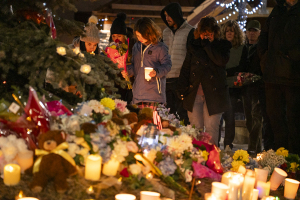Why does The Washington Post hate homeschooling?

A pitfall of the fallen human mind is how narratives shape our perception of the world, even outweighing facts and common sense. For example, nuclear power is one of the safest ways to generate electricity. According to the Our World in Data report, nuclear is 99.8% safer than coal in terms of deaths per unit of power. Yet because of three dramatic accidents and the press surrounding them — Three Mile Island in 1979, Chernobyl in 1986, and Fukushima in 2011 — nuclear power is widely perceived as extraordinarily dangerous and in need of claustrophobic regulation.
Similarly, a narrative pushed by many in the press aims at rendering something else radioactive: homeschooling. As a Washington Post analysis found late last year, homeschooling is America’s fastest growing form of education. Around 2.7 million students are homeschooled in America today, up by about a million since before the pandemic. For Washington Post reporters, this is scary.
One article described homeschooling as a “largely unregulated practice once confined to the ideological fringe,” whose rise in popularity is leading critics “to sound alarms.” In it, an emeritus Harvard Law professor ominously warned, “Policymakers should think, ‘Wow—this is a lot of kids.’ We should worry about whether they’re learning anything.’”
A school board member from Florida echoed their concern: “Many of these parents don’t have any understanding of education. The price will be very big to us, and to society. But that won’t show up for a few years.”
In a Washington Post story from December 2, Peter Jamison recounted the tragic death of an 11-year-old California boy named Roman Lopez, from severe neglect and abuse. Though, as in most such cases, the story involved a broken and blended family — a factor children’s rights activist Katy Faust points out is a consistent risk — according to The Washington Post, the thing to blame was that Lopez’s stepmom said she was homeschooling him.
“Home education was an easy way to avoid the scrutiny of teachers, principals, guidance counselors,” suggests Jamison. Yet, he admits,
“Little research exists on the link between homeschooling and child abuse. The few studies conducted in recent years have not shown that home-schooled children are at significantly greater risk of mistreatment than those who attend public, private or charter schools.”
And the Post wasn’t finished. Nine days later, the Post devoted an article aimed at debunking the work of homeschool researcher and advocate Brian Ray, who has long argued that homeschoolers outperform their public-schooled peers. With little content to criticize Ray’s methodology, the Post devoted space to quoting anti-home-schooling activists and Ray’s aggrieved adult daughter.
And then, three days after Christmas, the Post ran another article by Peter Jamison on the growing fear among home-schooling families that state funding in the form of vouchers will come with increased government oversight. Leaving little doubt where he stands on the issue of state oversight, he threw in a story about a network of Nazi homeschoolers in Ohio.
These articles reveal not only the biases of Washington Post reporters and their willingness to use scare stories in place of data but also expose crucial questions they are unwilling to ask, as well as assumptions about the role of parents and the state when it comes to education.
To simultaneously note how home schooling has exploded in popularity but, in almost every article, refuse to ask why the popularity, is at best, a stunning lack of curiosity. If asked, I suspect the parents of the over two-and-a-half million home-schoolers in America, would say something about endless school closures during COVID, ideological indoctrination in public school classrooms, the fact that standardized test scores are at a 30-year low, and that administrators and school boards act and, at times, articulate that they know better, and parents should butt out.
Perhaps many parents concluded they could do a better job teaching their kids. Perhaps they didn’t think they should “butt out.” Perhaps they are not comfortable with the lack of oversight in classrooms and over teachers and school boards. Perhaps, they are skeptical of the “experts” who are “sounding alarms” about homeschooling while ignoring the massive failures of the current state-run system.
Ultimately, The Washington Post’s breathless attacks on homeschooling reveal an unquestioned assumption that children belong primarily to the state and not to parents. The rise in homeschooling, Christian schooling, parent-run charter schools, and other innovations show that more and more families are rejecting that assumption. In doing so, they are acknowledging the biblical expectation that parents, not the state, are ultimately responsible for teaching and raising children.
If the press wants to keep giving homeschooling the nuclear power treatment, they should also develop some curiosity about why so many parents are choosing, often at great sacrifice, to take their children’s education back into their own hands. And they should ask what that says about the status quo.
Originally published at BreakPoint.
John Stonestreet serves as president of the Colson Center for Christian Worldview. He’s a sought-after author and speaker on areas of faith and culture, theology, worldview, education and apologetics.
Shane Morris is a senior writer at the Colson Center, where he has been the resident Calvinist and millennial, home-school grad since 2010, and an intern under Chuck Colson. He writes BreakPoint commentaries and columns. Shane has also written for The Federalist, The Christian Post, and Summit Ministries, and he blogs regularly for Patheos Evangelical as Troubler of Israel.



























